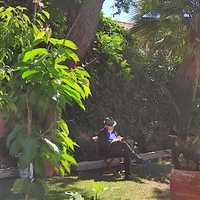Papers by Kate Roddy

The legacy of John Foxe’s Acts and Monuments has urged scholars of the English Reformation to con... more The legacy of John Foxe’s Acts and Monuments has urged scholars of the English Reformation to consider martyrdom the ultimate act of resistance, and recantation as an embarrassing lapse of faith. However, more recent criticism has drawn attention to the subversive potential of the false recantation, arguing that such events were not necessarily acts of capitulation but opportunities for covert evangelism and even shameless self-promotion. This article develops the above argument through an examination of the reformist Thomas Becon’s recantation of 1543, highlighting its innovative use of explicitly theatrical tropes to convey a message of falsity. However, the recantation’s potential for irony is shown to result in a lack of ideological stability in the narrative. Such instability, I argue, leads to further attempts to resolve or alter the meaning of a recantation through textual commentary. By means of close readings of the notable counter-recantation texts of Robert Wisdom and Robert Crowley, I demonstrate that the meaning of a recantation continues to be altered after the fact. Yet the defining quality of these texts is shown to be their confused and self-contradictory nature. I conclude that the continued argumentative oscillation of these texts indicates their ultimate failure to satisfactorily close down meaning and restore certainty to the co-religionist community.

In this article I examine Morrison's depiction of pornography and its influence on society within... more In this article I examine Morrison's depiction of pornography and its influence on society within his comic book works. I begin by situating these readings within the history of Western society's attempt to define and prohibit pornography, showing how Morrison's criticisms relate to these deeply entrenched and still ongoing debates. I then progress to an analysis of three Morrisonian texts dealing with different aspects of pornography: his satirical vision of the adult film industry in The Filth; his rebuttal to Fredric Wertham's writings on the pornographic nature of comics in Flex Mentallo; and his highlighting of the pervasiveness of the male gaze in Seven Soldiers of Victory: Bulleteer (2005). Through close readings of these key texts I demonstrate that Morrison's work calls not for limits to sexual expression, but a rejection of objectification and commercialization in art and culture. Access: http://www.english.ufl.edu/imagetext/archives/v8_2/roddy/

Creative responses to the DC Comics character Harley Quinn, sometime girlfriend and assistant to ... more Creative responses to the DC Comics character Harley Quinn, sometime girlfriend and assistant to the Joker and established favorite among female fans, are considered. By means of examples from an array of media (fan fiction, short film, and comics), I observe how the character's trait of submissiveness is read and (re)constructed. First acknowledging the antifeminist possibilities of the submissive female and masochism's portrayal within medical and psychoanalytic discourses, I then move on to explore the ways in which fans use the Harley character to overcome these negative stereotypes of sexual submission. I show that fan works exhibit evidence of familiarity with concepts of the Jungian shadow self and with real-life BDSM practices and philosophies. The central thesis is that we can understand the masochist as potentially Machiavellian—that is, creative and manipulative. Fan fiction echoes postmodernism's concern with ambiguous subjectivity and employs strategies that shift the responsibility for character construction from creator to reader.
Protestant Martyr Anne Askew's evocation of a Bible of the heart. In Heresy and Orthodoxy in Earl... more Protestant Martyr Anne Askew's evocation of a Bible of the heart. In Heresy and Orthodoxy in Early English Literature, 1350-1680, ed. by Eiléan Ní Chuilleanáin and John Flood (Dublin: Four Courts Press, 2010), pp. 100-112
Tudor prose and poetry about Queen Mary I. In New Perspectives on Tudor Cultures, ed. by Mike Pin... more Tudor prose and poetry about Queen Mary I. In New Perspectives on Tudor Cultures, ed. by Mike Pincombe and Zsolt Almasi (Cambridge: Scholar Press, 2012)
Book Reviews by Kate Roddy
Review in Irish Journal of Gothic and Horror Studies 13 (2014)
Book review in Recusant History 32.1 pp.130-132
Talks by Kate Roddy
Paper delivered at ‘Grant Morrison: Whose Side are You On?’, Stockholm University, December 2013
Paper delivered at University College Dublin EGS Seminars, October 2013
Paper delivered at 'Grant Morrison and the Superhero Renaissance', Trinity College Dublin, Septem... more Paper delivered at 'Grant Morrison and the Superhero Renaissance', Trinity College Dublin, September 2012
Publications by Kate Roddy
As Timothy Callahan observes in one of the earliest works of scholarship on the writer: “anti-cli... more As Timothy Callahan observes in one of the earliest works of scholarship on the writer: “anti-climax is typical of Morrison’s work.” However, as yet there has been no in-depth analysis of the uses and effects of this device within Morrison’s superhero narratives. In this essay I consider what Callahan terms “anti-climax” in its more literary guise, “bathos.” Taking examples of bathetic moments in Morrison’s writing I examine how he achieves the effect, and, most importantly, what his use of bathos reveals about his attitudes to storytelling and authorship.









Uploads
Papers by Kate Roddy
Book Reviews by Kate Roddy
Talks by Kate Roddy
Publications by Kate Roddy